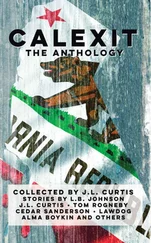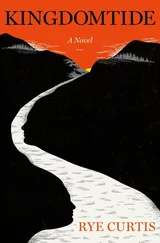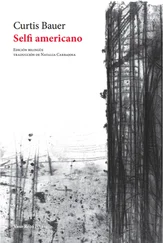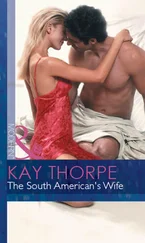Curtis Sittenfeld - American Wife
Здесь есть возможность читать онлайн «Curtis Sittenfeld - American Wife» весь текст электронной книги совершенно бесплатно (целиком полную версию без сокращений). В некоторых случаях можно слушать аудио, скачать через торрент в формате fb2 и присутствует краткое содержание. Жанр: Старинная литература, на английском языке. Описание произведения, (предисловие) а так же отзывы посетителей доступны на портале библиотеки ЛибКат.
- Название:American Wife
- Автор:
- Жанр:
- Год:неизвестен
- ISBN:нет данных
- Рейтинг книги:4 / 5. Голосов: 1
-
Избранное:Добавить в избранное
- Отзывы:
-
Ваша оценка:
- 80
- 1
- 2
- 3
- 4
- 5
American Wife: краткое содержание, описание и аннотация
Предлагаем к чтению аннотацию, описание, краткое содержание или предисловие (зависит от того, что написал сам автор книги «American Wife»). Если вы не нашли необходимую информацию о книге — напишите в комментариях, мы постараемся отыскать её.
American Wife — читать онлайн бесплатно полную книгу (весь текст) целиком
Ниже представлен текст книги, разбитый по страницам. Система сохранения места последней прочитанной страницы, позволяет с удобством читать онлайн бесплатно книгу «American Wife», без необходимости каждый раз заново искать на чём Вы остановились. Поставьте закладку, и сможете в любой момент перейти на страницу, на которой закончили чтение.
Интервал:
Закладка:
If I said now that not a day passes when I don’t think of the accident, of Andrew, it would be both true and not true. Occasionally, days go by when his name is nowhere on my tongue or in my mind, when I do not recall him walking away from me toward football practice in his jersey, his helmet at his side. Yet all the time, the accident is with me. It flows in my veins, it beats along with my heart, it is my skin and hair, my lungs and liver. Andrew died, I caused his death, and then, like a lover, I took him inside me.
MY PARENTS DIDN’T understand that night at the hospital, at first, that it was my fault; they thought the blame was shared. They arrived as the doctor was wrapping my left wrist in a putty-colored bandage that seemed embarrassing in its inconsequentiality, less a true injury than a plea for leniency from others. I also received twenty-five milligrams of Librium and a bandage on my left temple, and a nurse dabbed translucent yellow ointment on the cuts on my arms and legs.
I was the one who told my parents there had been a stop sign, that Andrew had had the right of way. My mother and father were wearing what they’d been wearing when I’d left the house under an hour before, my father in a twill shirt tucked into trousers, my mother in a belted shirtwaist dress, and I thought of having made them jump up from their card game, of how I’d been in their presence so very recently. The shift in events seemed bizarre and bewildering; it all had happened far too fast.
In the empty waiting room, when a police officer confirmed to us that Andrew had died, my mother gasped, my father took her hand, and none of us said a word. The officer asked me a few questions about the accident, including how fast I’d been driving (I had not been speeding), and then he spoke alone to my father. They were still speaking when Mr. and Mrs. Imhof arrived and were escorted away; his mother’s wails were audible all the way down the hall. My father concluded his conversation with the police officer and said, “Dorothy, we’re taking her home.”
“Should she talk to his parents?” my mother asked.
“For now, leave them be,” my father said.
In the parking lot, I saw that my parents had borrowed the Janaszewskis’ station wagon. We rode home in silence (what must they have been thinking during this drive?), and on Amity Lane, my father dropped my mother and me off in front of our house and drove across the street to return the keys. My grandmother had already come out to the front stoop—this was unusual, she rarely even stood when you came home and found her reading on the living room couch—and she said, “Thank goodness you’re all right.”
My mother, in a curter tone than I’d ever heard, said, “Emilie, we need to get inside.”
My grandmother followed us back in. “I take it the car was wrecked?” In my peripheral vision, I saw my mother shake her head: Do not ask. Then I saw that Mrs. Falke was still there, sitting at the card table smoking, and she said, “Alice, you’ve had us on pins and needles. Now, what have you done to your arm?” and my mother said, “Go upstairs, Alice.”
I didn’t look at my grandmother or Mrs. Falke as I left the room. I’d stopped crying after the nurse had given me the Librium, but my throat was still raw, and my eyes felt scrubbed out, my cheeks puffy. Decades later, I had a friend named Jessica who was much younger than I, and I once told her about the night I hit Andrew Imhof’s car. I almost never discussed it with anyone, but Jessica and I were very close, and it was around the anniversary of the accident, always a difficult time. Jessica couldn’t believe that I had come home from the hospital and gone up to my bedroom, that my parents and grandmother had left me alone. It was such a different time, though, there was so much less talk of feelings, and of course we were so unprepared; it was not the type of tragedy for which there was a script.
I entered my room without turning on the lights, removed my shoes, and climbed under the covers with my skirt and blouse still on (the cardigan sweater I never saw again—I must have left it in the car). It was impossible: I had caused another person’s death? And the person whose death I’d caused was Andrew, Andrew Imhof was dead because of me? There were things I worried about, tests, and the tension with my grandmother, and sometimes, when it occurred to me, Khrushchev bombing the United States. But this? It was, in all ways, impossible.
And I thought, Andrew . His smile and eyelashes, his hazel eyes, his tanned calves, my head against his chest at last spring’s prom. He had always liked me, he had never hidden it—the Dena years, I thought, didn’t really count, and why had I pretended they had?—and I had felt his recognition of me. People recognized you or they didn’t, and it was unrelated to knowing you. Knowing you could just be your name or the street you lived on, your father’s job. Recognizing you was understanding you had thoughts in your head, finding the same things funny or excruciating, remembering what you’d said months or even years after you’d said it. Andrew had always been kind to me, he had always noticed me. Who else in my life was that true of beyond my immediate family?
So why, when Andrew had offered his attention and affection since childhood, since well before Dena had staked her claim to him, why had I waited, holding him off? And I had held him off, I knew it now, and I’d known it when I was doing it. I’d been passive and ambivalent, I’d imagined that we had plenty of time. Then I thought that if he’d become my boyfriend earlier, we’d have gone to the party together; I would not have been driving alone.
The confusing part, the sickening part, was the double calamity. If Andrew had been killed in a car accident in which I was not involved, it still would have felt to me like a devastating loss. Or if I had hit the car of a person I didn’t know and the person had died, that, too, would have been a devastation. But both—both at once were unbearable. He was gone from me and I had caused it. In my life now, every year or so in a newspaper or magazine, I come across reports of similarly coincidental misfortunes: two brothers die on the same road on the same evening in separate motorcycle accidents, or a husband and wife, each in their own car, have a head-on collision. “How bizarre” is the tone of such articles, how interesting and unlikely. What are the odds! To me, these stories don’t seem interesting, and they don’t seem unlikely.
I DID NOT attend his funeral, nor did my parents. I didn’t return to school for a week, and then I did return, and very few people said anything to me that was either kind or unkind. An article about Andrew’s death had run on the front page of The Riley Citizen, but I didn’t know this at the time—my parents hid it from me, and many years passed before I was prompted by outside forces to read it. At school, there was no public acknowledgment, even in my absence, though after I graduated the following spring I learned the yearbook had been dedicated to Andrew. But even this was restrained, just a page that said IN MEMORIAM with a photo, his name, and the dates of his life: ANDREW CHRISTOPHER IMHOF, 1946–1963. Mrs. Schaub, my tenth-grade English teacher, slipped me a card and a copy of a Shakespeare sonnet, the one that starts “That time of year thou mayest in me behold / When yellow leaves, or none, or few, do hang,” and I was not exactly sure what I was supposed to take from it. I could manage only to skim her note, and I saw the phrase “very difficult time for you” in Mrs. Schaub’s loopy blue cursive, the same handwriting in which she’d praised my papers on Beowulf and Canterbury Tales. That was what I still wanted, to be treated as a regular student, to be regular—not this fraught goodwill, or the surreptitiously curious glances of my classmates, or the outright animosity, though that was rare. On my second day back at school, I passed Karl Ciesla, a former football teammate of Andrew’s, in the hall, and he murmured, “There’s a reason girls shouldn’t be allowed to get a license.”
Читать дальшеИнтервал:
Закладка:
Похожие книги на «American Wife»
Представляем Вашему вниманию похожие книги на «American Wife» списком для выбора. Мы отобрали схожую по названию и смыслу литературу в надежде предоставить читателям больше вариантов отыскать новые, интересные, ещё непрочитанные произведения.
Обсуждение, отзывы о книге «American Wife» и просто собственные мнения читателей. Оставьте ваши комментарии, напишите, что Вы думаете о произведении, его смысле или главных героях. Укажите что конкретно понравилось, а что нет, и почему Вы так считаете.












